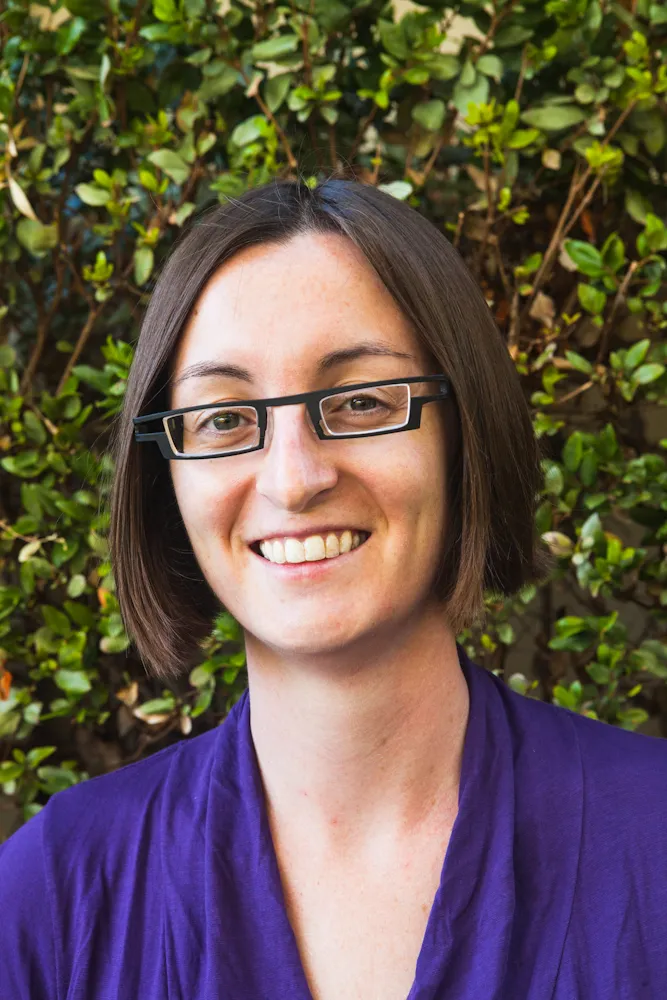
Sara Mrsny is a fifth-year philosophy doctoral candidate and the author of an attention-getting thesis on the philosophical necessity of an office environment accommodating of working parents. The Daily sat down with Mrsny to discuss her take on the work-life balance, her views on Sheryl Sandberg’s effort to bridge a similar divide and the challenges posed by other social institutions on working caregivers.
The Stanford Daily (TSD): How did you become interested in philosophy, and gender studies more broadly?
Sara Mrsny (SM): I took my first philosophy course by accident [at Wellesley]. I didn’t even know what philosophy was and I just needed an extra class to fill in my course schedule. I have always been interested in feminism and feminist activism as an undergraduate, [but] I didn’t really study it academically until I was a graduate student.
TSD: Can you explain your thesis briefly? How does it stand out from the other types of gender studies research out there?
SM: The question that my dissertation considers is how should care work be organized in a just and fair society. I look at several different answers to that question given by political philosophy traditions or various traditions of political philosophy. I am particularly interested in finding a political justification—and even developing my own—for policies and ways of organizing work that allow people to both have a job and take care of a family so that work is no longer specialized. Policies like family leave and flextime that allow people to do both things—I’m developing a political justification for those kinds of policies.
TSD: Does your research reflect your own personal take on this issue?
SM: I think that it’s important—for political equality—for people to be able to do both. There’s a certain status and fulfillment for people that comes with having a job and also status and fulfillment that come with having family. It should be easier than it is now for people to engage in both spheres instead of specializing of being a stay-at-home parent or a breadwinner who’s not as engaged in family life.
TSD: What inspired you to pursue such a specific—and certainly pertinent—issue from a philosophical standpoint?
SM: A lot of women I’ve known in my personal life have had this difficulty. My mother, various other relatives, friends I know are starting to struggle with the choices of whether or not to pursue their careers or slow down and have a family. Men face this problem too, but it’s still mostly being emphasized and talked about by women and certainly in the past it was more of a woman’s problem.
TSD: What do you hope to accomplish with your research?
SM: I hope to get people to understand why it’s important for [workers] to be able to combine work and family life—why equality demands it if you want to treat people as equals. It’s important that we have policies like this. I want to be able to explain what’s valuable about these kinds of policies, and political philosophy is exactly what you need to explain what values are at stake.
TSD: What has been the most challenging aspect of your research? Have you come up with any surprising conclusions?
SM: I think the challenging thing for me is that a lot of people in academia sort of assume that these are good policies and support them and so forth, [but] don’t really see the need to offer justifications. Especially in gender studies, I think there’s often an assumption that we should support all these kind of policies.
Nationally we don’t have the support for them—there are no bills [being] considered right now in Congress for furthering these policies. I think that the surprising thing is that a lot of people don’t realize how much we need these justifications to get any action done.
TSD: Sheryl Sandberg recently visited campus to give a talk on how individuals in the workplace can manage this work-life balance. What is your response to her argument about equality in the office as being achieved through a combination of both personal and workforce initiatives?
SM: So, Sheryl Sandberg seems to be focusing on encouraging individual women to have a certain proactive attitude to their own careers and workplaces. I think we can’t lose sight of the fact that workplace policy matters a lot too.
The onus, the burden should not only be on individual women to…lean in” to the workplace. We should also make sure that the workplace is a friendly and supportive place to lean into. And that’s the kind of thing that policy—both governmental and employer policies—can help do. So both sides are needed. Yes, women have to lean in, but they have to be able to lean into a hospitable environment. And that’s the side of the equation that I’m interested in.
TSD: As both a mother and a student, have you been able to achieve this work-life balance?
SM: My twin daughters are seven weeks old so no, I haven’t been able to balance anything yet. I’m still figuring this out for myself. I don’t have the answers, I don’t know. This is important to me personally as well as academically.
This interview has been condensed and edited.
